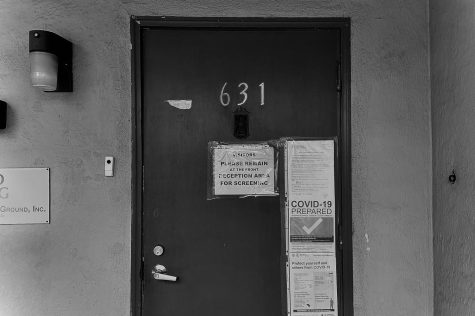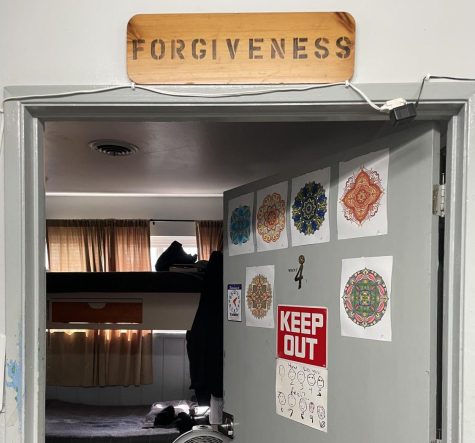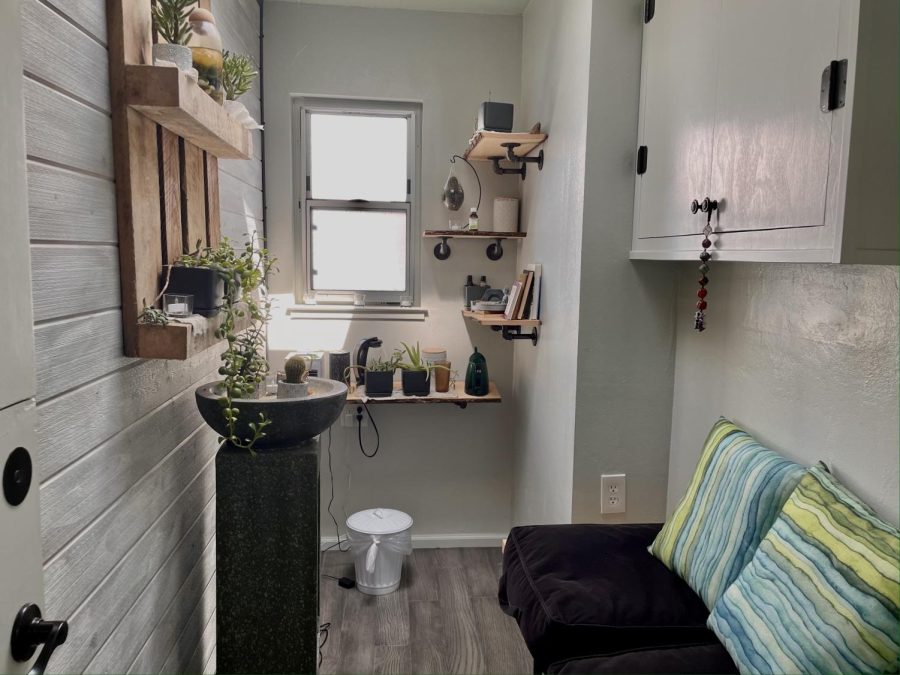For some, substances serve as an escape. However, moderated usage can lead to dependence; what once was used to enhance one’s experience becomes a crutch. It leaves the user chasing a never-ending high in fear of coming down and falling apart.
A National Survey on Drug Use and Health study found that approximately 19.7 million American adults (aged 12 years old and older) battled a substance use disorder in 2017. The NIH found that 10 percent of U.S. adults struggle with addiction at some point. However, a striking 75% report not receiving any treatment.
Often, addicts struggle to hold up a mirror, fearing what they will see in their reflection. It can require honesty. Along the steep climb to the surface, one might confront the ugliest parts of their reflection.
Rehab serves as the arm that shoves that mirror in your face because the first battle requires awareness and accountability. It is the return to reality, aiming to help individuals tie themselves back together.
There are many ways for someone to enter rehab. Some join of their own volition, while others are referred there by their loved ones. However, courts give many mandatory rehab stints due to drug-related offenses. Chris Morales, the Director of Operations of the treatment program Our Common Ground, explains the expected initial mindset for addicts enrolled in rehab by the court.
“If somebody is being sentenced they may not really want to change what has put them in this position. They might just be choosing us as an alternative to jail because it’s not as bad in their mind as going to jail and doing time […] You might see an individual like that may not seem as motivated to actually change and may feel like they’re just saying the right things or just doing time, so to speak,” Morales said.
When an addict is in an environment with easy access to drugs, they can often spiral hard in a way that could potentially cost them their life. Eric Johnson recalled one conversation he had with a client who nearly died due to his addiction.
“One conversation that I have with a client is when he was out there, doing drugs, that he robbed somebody, and they came back looking for him. He had to beg for his life. Thank God that they didn’t murder him,” Johnson said.

Treatment centers provide an escape from these compromising situations, giving their clients a real shot in their fight against addiction. Through individual therapy sessions, group meetings discussing specific facets of addiction, and overall time spent living at the facility, addicts slowly begin their climb. Regardless, the hopeful outcome is a changed mindset.
Brendan Murray, the outpatient program coordinator at Our Common Ground, works closely with patients to help ease their internal battles.
“In terms of building trust, that does take time. I think that’s part of the process of clients, really being able to, to test the limits of what they can share with me […] very often they’re sharing very vulnerable things with me. Sometimes there’s sexual abuse, there’s violence in their past – things that they’re sharing and disclosing with me,” Murray said.
Eric Johnson once went through this process at Our Common Ground is now giving back to the community by serving as a TC, a clinician who works directly with clients and administers medication. He went through the exact process of allowing vulnerability to overpower fear in order to overcome his trauma-induced addiction.
“The hardest thing I faced about being in the program, I lost my mom and my grandma a month apart. And I kind of shut down a little bit. But they were patient with me. They didn’t bombard me,” Johnson said.

After spending time acclimating to their new environment, clients begin to drop the reservations they may have held towards the program before joining.
“The longer people are here in the program, the more of a shift in their attitude and their behavior, you see, and so some who come here – originally not wanting to be here but being sentenced to be here through criminal justice – after a month or two may start to think to themselves, maybe there is something to this, maybe I do need to make a change, maybe I should be living a little differently,” Morales said.
Additionally, external factors add to the barriers clients must face. Recent legislation and budget cuts have added complications to the rehab process. State funding for inpatient facility stays was cut from 120 days to only 30, forcing the patient to receive outpatient services. This forces users back into compromising environments where they are vulnerable to relapse.
“The issue with outpatient being the only thing being offered to a client is a lot of clients that we see in this position live in compromising environments, where there are drugs, where there’s violence. Just coming to group therapy for three hours a day, and then going back into those environments did not set them up for success. There were a lot of relapses involved,” Morales said
Ultimately, a way to measure progress is by the mindset shift driving individuals to want to fight the battle. Not only are they swimming against the current, but they are doing so without the “support” that substances previously provided. However, inner motivation combined with the organization’s support can help turn the tide in the battle against addiction.
To curate this shift, the organization focuses on group therapy techniques, using peer pressure to its advantage. While many clients feel apprehensive at first, seeing the progress of the longer-tenured patients in the facility can serve as a reminder that the surface is not too far away. After patients break the initial barrier of being vulnerable in front of strangers, they can take advantage of the peer-styled approach to help each other move forward.

“There’s something about being able to look to someone who’s been in the same chairs for a little longer and who’s turned the corner showing them it’s possible. Like, ‘I felt like you did eight months ago, but here I am now,’” Morales said.
In the eyes of many, a successful stint in rehab is kicking one’s addiction entirely and living a sober life. However, Morales’ experience in the rehabilitation field has caused him to redefine his idea of success to more of a spectrum. Morales believes it is up to individuals to develop their own measure of success.
“You might have a client, one client, whose outcome was x, with four different people who have vested interest, who all might have a different definition of that client. One might say, ‘100% successful for sure.; One might say, ‘Absolute failure,’” Morales said, “It’s just really interesting that this is the same client we’re talking about.”
Eric Johnson has stayed sober for over 20 years, however, it’s still a fight every day to stay clean.
“It’s still a challenge. Our Common Ground is right next to a liquor store. I’m still vulnerable in a way, but I still have the support, even though I graduated,” Johnson said.
Our Common Ground’s graduation illustrates this idea — all patients who make it through the entire program graduate the program. The diploma they receive from the program is permanent. However, Morales knows that even when one makes it back to the surface, it’s a struggle every day to keep swimming.
“There’s no last step to sobriety. It is something that people will have to deal with for the rest of their life. They’re either constantly working toward it or slipping away from it,” Morales said, “Let’s say five years from now, ten years from now, you fall on hard times, you relapse, you start using, things are spinning out of control. We will get you a bed in our program; you can come right back in. Whether you just need 30 days to get back on your feet and catch your breath,” Morales said.














